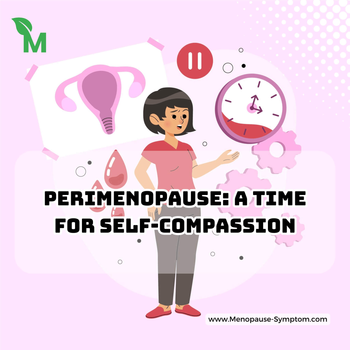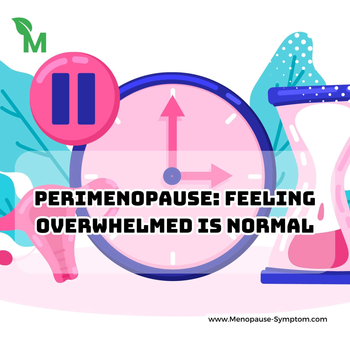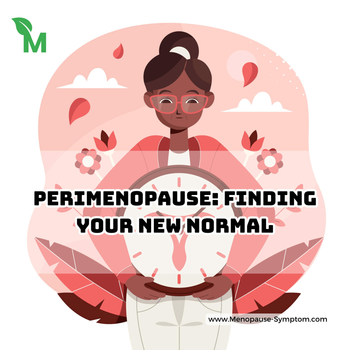Perimenopause: Managing Hot Flashes And Night Sweats
On
06/10/2024Reading time:
7 min
Summary:
Perimenopause is a natural stage in a woman's life, usually starting around age 40 to 50. This is when the body begins to experience hormonal changes, leading to a variety of uncomfortable symptoms, the most prominent of which are hot flashes and night sweats.
These changes can cause not only discomfort but also affect the quality of sleep and daily life. However, you can completely manage these symptoms effectively.
Understanding Perimenopause
Perimenopause is not simply a transitional stage but also a challenging time for many women. As estrogen and progesterone levels decrease, the body begins to react in a variety of ways. Hot flashes, a feeling of heat in the face, neck and chest, are one of the most common symptoms. Often occurring during the day, night sweats are associated with night sweats, which can disrupt sleep. Therefore, understanding and controlling the problems that come from perimenopause becomes an essential need.
Hot Flashes: Overcoming from the Inside
Hot flashes can occur suddenly and without warning. In many cases, they can disrupt your work and daily activities. To effectively manage hot flashes, many women turn to natural therapies. Maintaining a balanced diet rich in fruits and vegetables can help improve overall health and ease perimenopause symptoms. Foods rich in phytoestrogens, such as soy and flaxseed, can help balance hormones, thereby reducing the frequency and intensity of hot flashes.
Night Sweats: Solutions and Strategies
Night sweats are an inevitable part of going through perimenopause. Not only does this disrupt sleep, it can also lead to daytime fatigue. To effectively manage this symptom, consider changing your sleeping environment. Keep your bedroom cool, airy, and dark to facilitate deep sleep. Additionally, choosing pajamas made from cotton or breathable fabrics can also help you feel more comfortable.
Relaxation and Breathing Techniques
One way to manage hot flashes and sweating is to use relaxation techniques. Practicing yoga, meditation, or deep breathing exercises can help you manage stress and negative emotions. They also help you get closer to yourself, thereby reducing the severity of symptoms. Research shows that regular practice can help improve sleep and reduce hot flashes.
Use Supplements
If perimenopause symptoms continue to be bothersome, you may consider using supplements. Herbal products such as Black Cohosh, Dong Quai, and Jujube have been shown to be effective in reducing hot flashes and night sweats. However, before starting any supplement, consult your doctor to make sure it is appropriate for you.
Positive Thinking and Community Connection
Going through perimenopause is not just a battle against symptoms, it is also a journey of self-discovery. Keep a positive mindset and remember that you are not going through this alone. The psychological aspect is also important in managing perimenopause-related issues. Joining a local or online support group can help you connect, share and empathize with other women going through this stage. This not only provides a sense of companionship but also a great source of mental encouragement.
Exercise Regularly
Exercise is not only good for your overall health but also has a positive effect on managing and reducing perimenopause symptoms. Regular exercise helps to improve cardiovascular health, reduce stress and improve mood. Activities such as walking, swimming, or yoga are great for both physical and mental health. Find an activity that you enjoy and practice it every day. Not only will this help you feel better, it can also reduce hot flashes and night sweats.
Practice Healthy Sleep
A good night’s sleep is key to improving your life during perimenopause. Establish a regular sleep routine, paying attention to the same time you go to bed and wake up each day. Make sure to remove electronic devices from your bedroom and minimize light before bed to help your body enter deep sleep.
Record and Track
Keeping a symptom diary is a useful way to better understand your hot flashes, night sweats, and triggers in your life. Having this information can help you identify and adjust your daily routine, thereby managing perimenopause more effectively.
Conclusion:
Going through perimenopause can be a real challenge, but with the right knowledge and tools today, you can effectively manage hot flashes and night sweats. Remember that you are in control of this journey and it is important to find a solution that works for you. Don’t be afraid to share with those around you, always be open about the symptoms you experience. Your perimenopause journey is not just about physical changes, but also about self-discovery. Face them with confidence and feel empowered.
Key points:
· Mental well-being: A positive attitude can help cope with perimenopausal challenges.
· Community connection: Joining support groups can provide emotional support and practical advice.
· Physical health: Regular exercise and a good night's sleep contribute to overall well-being.
· Self-awareness: Tracking symptoms can help identify triggers and manage them effectively.
Source: Team MPS compiled, analyzed and wrote. Please dont reup without source. Many thanks.

Perimenopause: A Time For Self-Compassion
09.02.2024
Perimenopause is a special transitional period in a woman's life. Perimenopause is the time when the body begins the natural transition to menopause, marking the end of a woman's reproductive years.

Perimenopause: Feeling Overwhelmed Is Normal
09.02.2024
Perimenopause is a natural phase in every woman's life, typically starting in her 40s and lasting until her 50s. However, many women may feel overwhelmed by the range of physical and psychological changes that this phase brings.

Perimenopause: Finding Your New Normal
09.02.2024
Perimenopause is a natural phase in a woman's life, but it often comes with emotional and physical changes and challenges. For many, perimenopause can cause feelings of anxiety and uncertainty.
